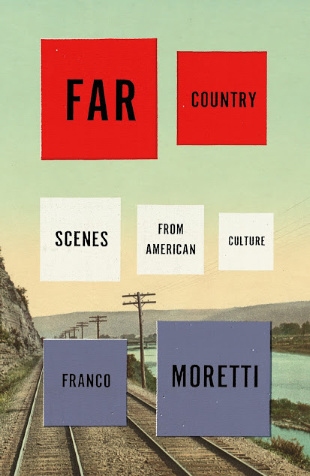Franco Moretti is a professor emeritus at Stanford, where he founded the Center for the Study of the Novel and cofounded the Literary Lab. He is the author of many books including Distant Reading, winner of the 2013 Book Critics Circle Award for Criticism. His work has been translated into more than 20 languages.
It is usually a grand adventure to read literary critics who shake us up and open new doors to the interpretation of fiction and other genres of writing. In the past, Moretti has experimented with works on loudness in the 19th century novel and, even more avant-garde, the growing language of World Bank reports. Moretti calls these pieces "computational criticism."
Far Country is a rather free-form and thought-provoking collection of university lectures on fiction, drama, art, and film where he probes the ways in which language and style create form. In several explorations, Moretti proves to be a master of hop-skip-and-jump, a style familiar to the younger generation who are used to screens filled with data, images, and reports from different sources.
A good example of the author's application of "computational criticism" is his finding 25 prepositional phrases in a passage from Ernest Hemingway's "Big Two-Hearted River." In "Walt Whitman or Charles Baudelaire?" he demonstrates why the American has the edge with his vision of aesthetics. In the best lecture of all Moretti points out that in Westerns "words don't matter" whereas in film noir the drama is "unimaginable without words." With panache and philosophical finesse, the author deepens and expands our understanding and enrichment of the Western film Red River directed by Howard Hawks (see the excerpt).
There are many ways to assess a country. Moretti's approach will have you looking at America in ways you never thought of before.
